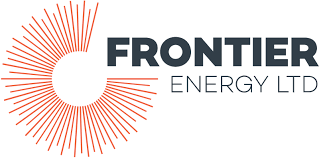Frontier Energy Secures Capacity Credits for Waroona Project

Waroona project receives 88.06 MW capacity allocation, securing $160 million in guaranteed revenue over five years based on expected pricing.
- Australian Energy Market Operator assigns 88.06 MW of peak capacity credits to Stage One of Waroona Renewable Energy Project for 2027-2028 Reserve Capacity Cycle
- Project designated as fixed-price facility for first five years (October 2027 to September 2032), with minimum $160 million in capacity credit revenue based on $360,700/MW Reserve Capacity Price
- First year capacity credit revenue expected at approximately $32 million
- Battery duration increased from 4.75 hours to 6 hours to align with new Energy Storage Resource Obligation Duration requirements
- Company progressing financing negotiations, targeting finalisation in coming months
Frontier Energy Limited (ASX: FHE) is an Australian renewable energy developer focused on utility-scale solar and battery storage projects in Western Australia. The company's primary project is the Waroona Renewable Energy Project, which combines solar generation with battery storage to supply power during peak demand periods. The company's approach involves storing solar energy and discharging it when electricity prices are higher.
Capacity Credit Assignment Completes Allocation Process
The Australian Energy Market Operator assigned 88.06 MW of peak capacity credits to Waroona Stage One following the Network Access Quantity determination. This assignment followed the earlier allocation of 88.06 MW of Certified Reserve Capacity. The allocation process is now complete.
The Benchmark Reserve Capacity Price for 2027-2028 is $360,700/MW, with the final Reserve Capacity Price to be announced on 27 November 2025. Energy Policy WA has introduced a price deadband mechanism whereby the final price equals the benchmark price if Peak Certified Reserve Capacity is within 5% of the capacity target. Based on the final reserve capacity allocation, the surplus is expected to fall within this deadband.
The capacity credit mechanism provides revenue for generators based on their availability to supply electricity during peak demand periods. For Waroona Stage One, this translates to approximately $32 million annually for the first five years, based on the expected Reserve Capacity Price.
Fixed-Price Status Provides Revenue Certainty
Frontier nominated Waroona Stage One as a fixed-price facility for the first five years of operation. This designation locks in the Reserve Capacity Price at $360,700/MW from October 2027 to September 2032, totalling at least $160 million over that period. From the sixth year of operations (October 2032), the Reserve Capacity Price will be determined annually on a variable price basis.
Chief Executive Officer Adam Kiley stated:
"This is a major milestone for the Company as the assignment of capacity credits, coupled with being a fixed priced facility, means the guaranteed revenue required by both equity and debt financiers has now been secured. Revenue from capacity credits in the first year will be approximately $32 million, with total revenue from capacity credits over the first five years of operations of approximately $160 million."
Capacity credit revenue represents approximately 50% of forecast revenue for Stage One. Additional revenue is expected from energy sales, Large-scale Generation Certificates, and other market opportunities. The average energy price on the Wholesale Energy Market has increased to $94/MWh in 2025 from $80/MWh in 2024, whilst peak period pricing (5pm to 9pm) has averaged $134/MWh in 2025.
Battery Duration Increased to Meet Updated Requirements
The Australian Energy Market Operator's 2025 Electricity Statement of Opportunities report set the Energy Storage Resource Obligation Duration for the 2027-2028 Reserve Capacity Cycle at six hours. Previously, this requirement was four hours, and the company's December 2024 feasibility study assumed a 4.75-hour battery storage system.
Proceeding with a 4.75-hour battery would have resulted in proportionately fewer capacity credits being assigned than modelled in the feasibility study, reducing revenue. Frontier therefore increased the battery duration to at least six hours to maximise assigned capacity credits. The company is progressing negotiations with equipment manufacturers to finalise costs for the larger battery. Battery storage costs per MW have fallen considerably since the feasibility study was released.
Under market rules, facilities that receive capacity credits are protected from future increases in the Energy Storage Resource Obligation Duration for 10 years. This means they will not be derated due to duration changes during that period.
Financing and Development Progress
Frontier has been engaged with strategic investors throughout 2025 regarding financing for Stage One. The fixed Reserve Capacity Price provides guaranteed revenue that expands available funding avenues for the project's development. Negotiations are continuing with financiers, with the company aiming to finalise its preferred funding strategy in the coming months.
The company is progressing negotiations with equipment manufacturers to finalise costs for the six-hour battery system and other key equipment. These activities are occurring in parallel with the financing process. The project is targeting commercial operations in October 2027.
Analyst's Notes




Subscribe to Our Channel
Stay Informed












